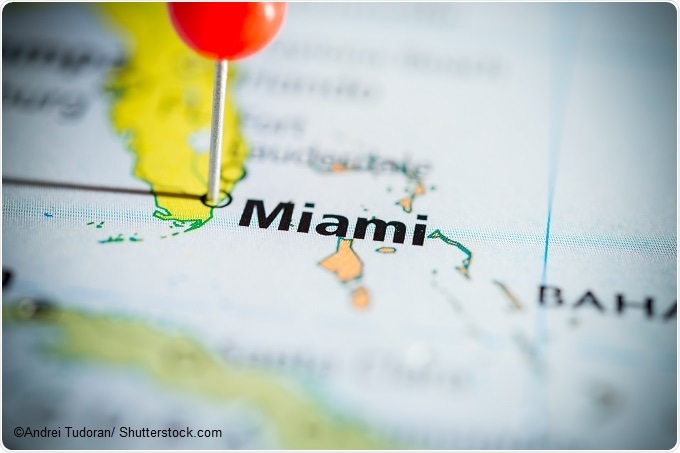Scientists at the Scripps Translational Science Institute (TSRI) have mapped the entry of the Zika virus into the US by analysing its DNA. Miami was found to be a hot spot for transmission of Zika.
As holiday periods and the mosquito season approach in the Northern Hemisphere, scientists are keen to avoid a repetition of the Zika outbreak. However, there was only a relatively small evidence base on which to plan preventative strategies. Despite the size of the recent Zika outbreak, information regarding the evolution of the Zika virus and the epidemiology of Zika infection was scarce. To address this knowledge gap, TSRI researchers have generated 110 Zika virus genomes using clinical and mosquito samples from 10 countries.

Kristian G Andersen, director of infectious disease genomics at TSRI explained."Without these genomes, we wouldn't be able to reconstruct the history of how the virus moved around. Rapid viral genome sequencing during ongoing outbreaks is a new development that has only been made possible over the last couple of years."
By studying the viral gene sequences at various points of the outbreak, the researchers have been able to identify separate evolutionary paths, from which they mapped routes of transmission of the ZIka virus to the US. This has provided insight into the most likely points of Zika re-entering the country this year.
The genetic analyses indicated that the 2016 outbreak grew rapidly in Brazil and that there were multiple introductions of outbreak strains into countries of Central and Southern America, the Caribbean and the US. The 2016 Zika outbreak was found to have been transmitted to Florida up to 40 times. Genetic analysis of the strains of Zika virus reaching Florida showed that they had originated in the Caribbean.
Through analysis of Zika virus gene sequences, travel data and mosquito abundance data, the researchers identified Miami as a key point for Zika transmission. A range of risk factors for Zika contribute to this special status. Miami has year-round populations of the Aedes aegypti mosquito that transmits Zika virus. It is also the US city with the greatest volume of international air and sea traffic. Furthermore, more than half of the international travellers entering Miami in 2016 were from the Caribbean, a Zika-afflicted area.
The researchers reported that decreasing the mosquito population in an area resulted in a proportional decrease in the number of Zika infections goes down proportionally. Mosquito control, rather than travel restrictions, is thus more likely to successfully stem the spread of Zika.
Importantly, TSRI scientists found the presence of Zika virus in some regions many months before the first locally transmitted cases were confirmed. More rigorous surveillance of viral infections is thus needed to stem potential transmission of the Zika virus.
Andersen commented "Given how many times the introductions happened, trying to restrict traffic or movement of people obviously isn't a solution. Focusing on disease prevention and mosquito control in endemic areas is likely to be a much more successful strategy.
It is hoped that this analysis of the 2016 epidemic will help scientists and health officials respond even faster to prevent the spread of Zika this year.
Sources:
- Scripps Research Institute Press release 24 May 2017. Available at: https://www.eurekalert.org/pub_releases/2017-05/sri-zrm052417.php
- Metski HC, et al. Zika virus evolution and spread in the Americas. Nature 2017. Epub ahead of print. Available at: http://www.nature.com/nature/journal/vaop/ncurrent/full/nature22402.html?WT.ec_id=NATURE-20170525&spMailingID=54132792&spUserID=OTk0ODcxNjUzMDIS1&spJobID=1164061838&spReportId=MTE2NDA2MTgzOAS2